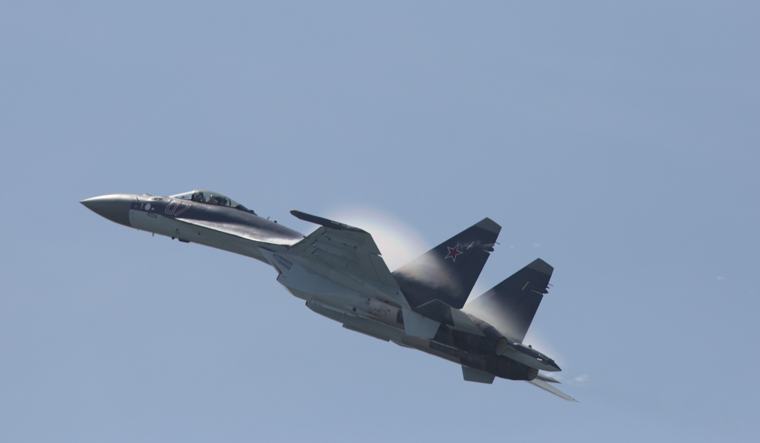Purchase of major military equipment from Russia like the multi-billion dollar S-400 missile defence system would be considered as a "significant transaction" and thus has a potential for the Trump administration to invoke the Countering America's Adversaries Through Sanctions Act (CAATSA), a US official said.
And as such, soon after President Donald Trump signed an executive order in this regard, the US imposed sanctions on a Chinese entity, the Equipment Development Department, or EDD, and also upon its director, Li Shangfu, for Beijing's recent purchase of Russian Sukhoi Su-35 fighter jets and S-400 surface-to-air missiles, a senior administration official told reporters during a conference call.
As a result, all property and interests in property within the US jurisdiction of the EDD and Shangfu have been blocked and the US citizens barred from transacting with them, he said.
"We want to stress that the legislative standard here is a significant transaction with an entity that appears on the List of Specified Persons. We took these actions because China took delivery of 10 Sukhoi fighter aircraft, specifically Su-35s, in December of 2017, after the CAATSA statute came into force. It also took delivery of a batch of S-400, sometimes known as SA-21 surface-to-air missile systems, or related equipment in January of this year," the official said.
Both these Chinese transactions from Russia, he said, occurred after the CAATSA sanctions statute came into force. The deal was negotiated between the Equipment Development Department and Rosoboronexport, which is Russia's main arms export entity, he added.
The official emphasised that the ultimate target of the CAATSA sanctions was Russia.
"CAATSA sanctions in this context are not intended to undermine the defence capabilities of any particular country. They are instead aimed at imposing costs upon Russia in response to its malign activities," he said.
"Those malign activities are undertaken to compete with the US and its allies and partners. This is for the first time that the US has sanctioned anyone under Section 231 of CAATSA, which focuses upon those who engage in significant transactions with entities that appear on the LSP," the official said.
He declined to answer a question on whether the US would be taking similar action against countries, like Turkey, that buy S-400 missile defence system. While India has repeatedly declared that it intends to complete a purchase of the S-400 system this year, the Trump administration has yet to reveal whether such a deal would get a CAATSA waiver.
"As to other potential recipients of the S-400, we haven't made any determinations yet with respect to what to do about those, but you can be confident that we have spent an enormous amount of time talking about prospective purchases of things such as S-400s and Sukhois with people all around the world who may have been interested in such things and some who may still be," the official said.
He said the Trump administration has made it "very clear" to these countries that these systems like the S-400 are a system of key concern with potential CAATSA implications.
"So while decisions on other cases have yet to be made, and indeed other transactions have yet to occur, we hope that at least this step will send a signal of our seriousness and perhaps encourage others to think twice about their own engagement with the Russian defence and intelligence sectors, which would of course be precisely what we hope Congress intended, and what we are required to do pursuant to the fact," the official said.



